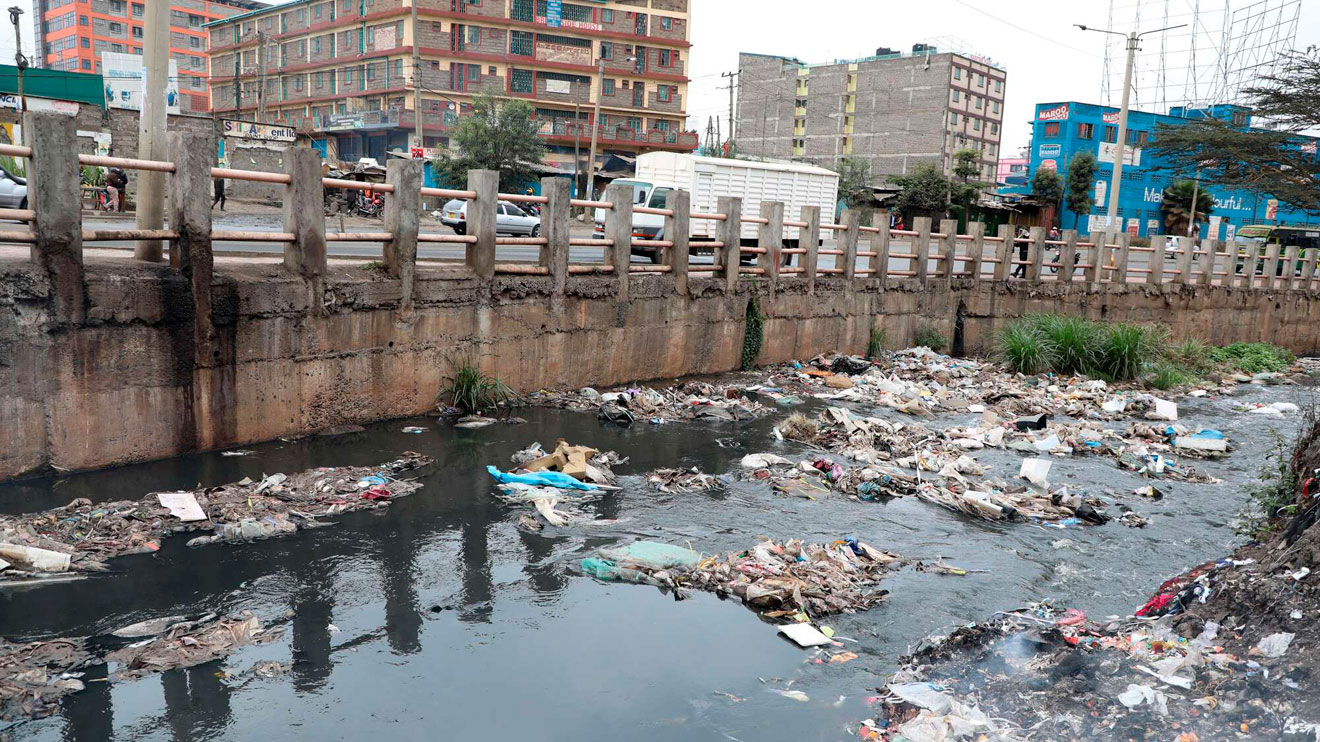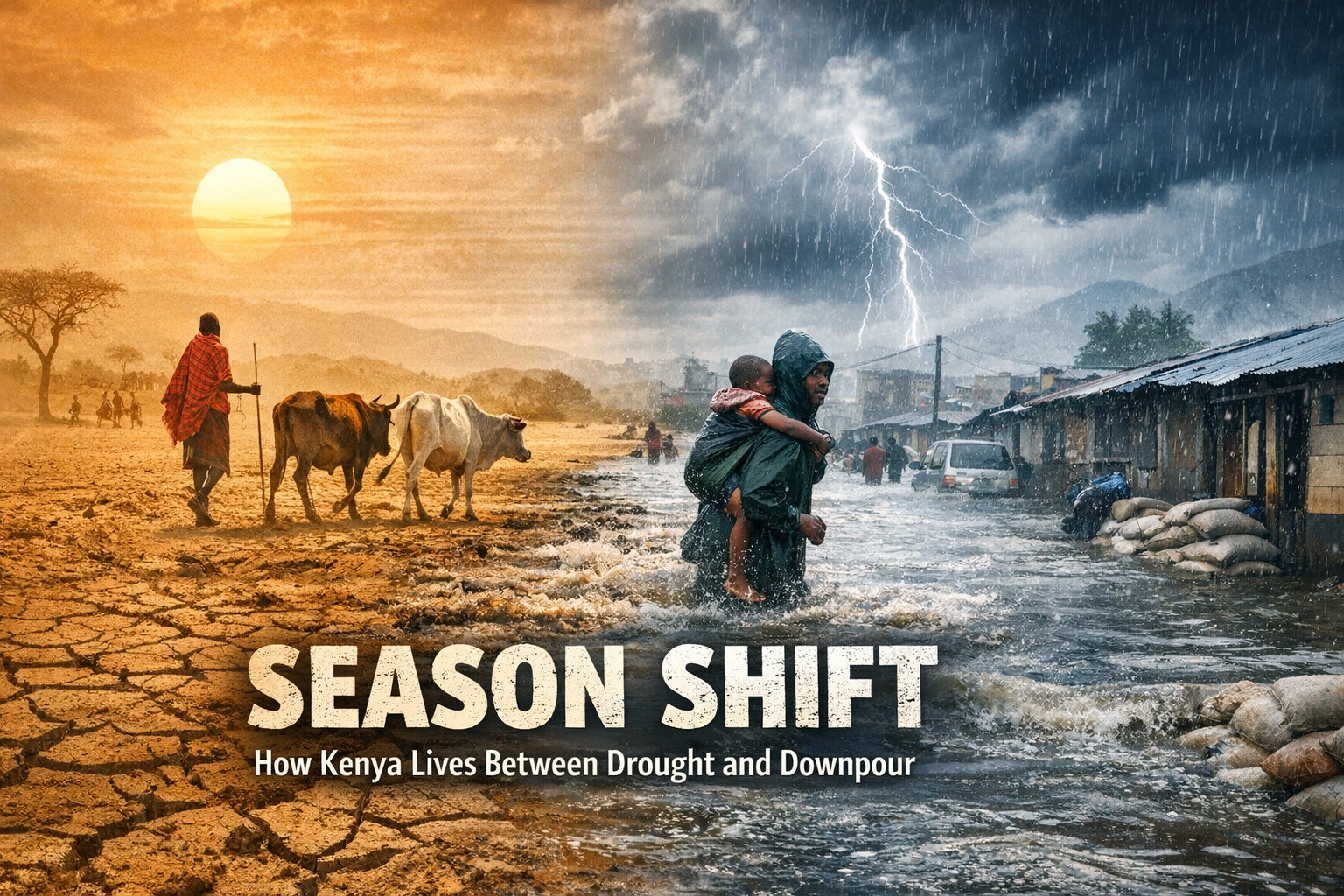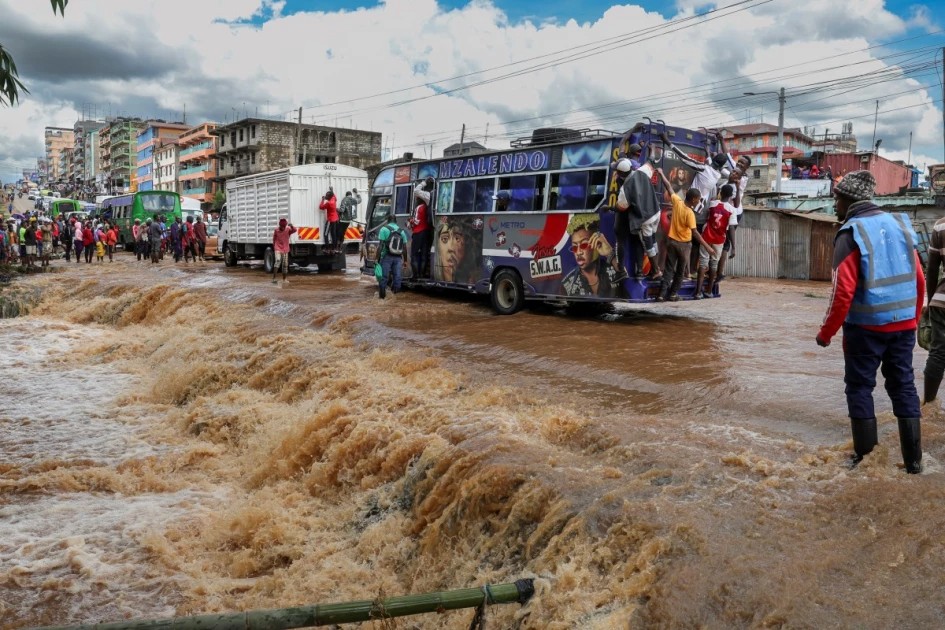- Cabinet Secretary for the Ministry of Environment, Climate Change and Forestry, Hon. Aden Duale, has joined the Earth Keepers Foundation, in partnership with the India High Commission of Kenya, to commemorate India’s 78th Independence Day by planting 3000 Bamboo trees.
- He has urged the National Environment Management Authority (NEMA) to clean up the River since it passes through City Park, which is full of pollution due to illegal discharges.
- The Nairobi River flows through the Capital, tainting the city with black and dirty water instead of clean and clear water. The River contains all kinds of waste, including human waste and carcasses of dead animals.
Cabinet Secretary for the Ministry of Environment, Climate Change and Forestry, Hon. Aden Duale, has joined the Earth Keepers Foundation, in partnership with the India High Commission of Kenya, to commemorate India’s 78th Independence Day by planting 3000 Bamboo trees.
During the exercise, he got a chance to speak about the current condition of the Nairobi River.
Nairobi River is posing a potential threat to the health and wellness of the residents of Nairobi.
He has urged the National Environment Management Authority (NEMA) to clean up the River since it passes through City Park, which is full of pollution due to illegal discharges.
The Nairobi River flows through the Capital, tainting the city with black and dirty water instead of clean and clear water. The River contains all kinds of waste, including human waste and carcasses of dead animals.
Read More
The River feeds on untreated wastewater from nearby industries. Oil, glass, and plastics also enter the River from the same sectors.
Moreover, the River passes Kibera, an area with a population of about 200,000. Experts and locals have complained of the possible harm to the nearby plants that many Kenyans in Nairobi depend on.
Some of the families in the region, about 30 kilometres away, have stated that they can no longer depend on the water due to its dirty nature and the potential health risks it poses.
Some residents report that they are forced to buy expensive water for their domestic use. This is because whenever it rains, the River is full of garbage, and when the dry season sets in, the water gradually turns from clear to darker, thus not fit for any use, says Nduta, one of the residents.
Morris Mutunga is one of the farmers in the Athi-River area who sometimes uses the water from the Nairobi River to water his crops. He discouragely reports that he has watched his French beans shrink whenever he uses the water.
Notably, the area is the primary source of vegetables for vendors in Nairobi markets. “I urge those involved in polluting the river upstream to stop to secure food security in Kenya,” he stated
A scientist named Stephen Obiero, who studies organisms and the environment, has explained the danger facing plant products watered by the water from the same River. He has said that such plants are in peril of exposure to some bacteria and viruses.
The journey to clean up the River is still far away, with the numerous crowded unofficial settlements in the area. These settlements release their domestic and human waste into the River daily due to insufficient funds for modern toilets. Thus, to offer a lasting solution, more than just cleaning is needed.
NEMA, therefore, needs to look deeper into how to hold accountable the industries around the area that release waste into the River. Secondly, an alternative should be provided for the inhabitants of the area who cannot afford to pay for modern toilets to curb the practice of throwing human excreta into the River.







